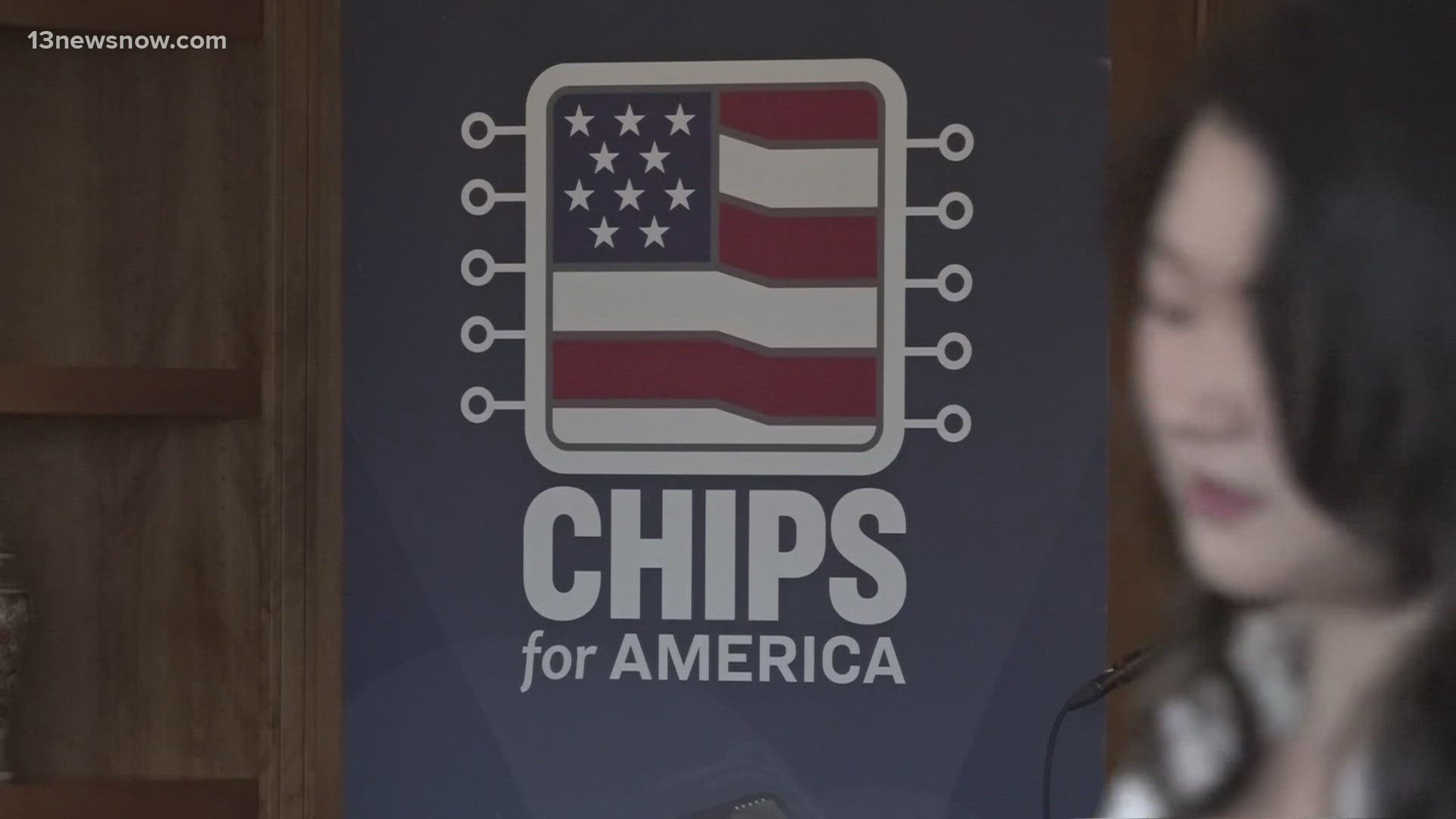NORFOLK, Va. — On Wednesday, representatives with the U.S. Department of Commerce's Chips For America Program and the U.S. Department of Labor's Vets program visited Norfolk State University to highlight how the school is helping veterans enter the microelectronic and semiconductor industry.
"Transitioning from military police to the [semiconductor] industry, you have to have some degree, some type of platform. So they [NSU] gave us the platform," said Combat Veteran George Arther Brokman Jr.
The school offers a veterans training program designed to teach veterans skills in nanotechnology. Brokman Junior is one of several veterans who have successfully received a nanomanufacturing certificate from Norfolk State University.
"Today's event was tremendously important because our national security rests on our ability to bring semiconductor manufacturing back to the United States," said Morgan Dwyer, the Chief Strategy Officer of the CHIPS program at the Department of Commerce.
"But we're not going to be able to do that unless we have the workforce that we need to operate the facilities that we are building at CHIPS for America," said Dwyer.
CHIP technology is found in vehicles, televisions, military hardware, and more. Dwyer says the technology is largely produced overseas and poses a security risk to national security. She says programs like NSU's nanomanufacturing certificate program help attract students and veterans into the field by providing hands-on instruction with nanotechnology and 'a clean room,' which is a sterile environment to train with the technology.
"Our clean room is a class 100 clean room, which means that within a cubic inch of air, there can only be 100 or fewer particles, so it's a very clean environment," said Dr. Patricia Mead, an NSU Professor and Chair of the Engineering Department.
According to NSU's website, students are taught skills companies need to move life-changing nano-scale applications out of the laboratory and into the marketplace.
"Students here, learn the technologies and how those tools are used when you're building chips. They learn those technologies when they go into our clean room here, and our researchers here [can] fabricate structures and sensors [that will] help us improve on technologies," said Dr. Mead.
Upon completing the program, Brokman expresses a profound sense of purpose. He feels that by working in the semiconductor field, he is still serving his country, a sentiment that resonates deeply with many veterans.
"To go through the program, it lets you know that you're still wanted as a veteran to serve the country, the CHIP program is for the country. It's for the world actually," said Brokman.
Dr. Mead says NSU's veterans can choose between a 10 and 12-week program.

